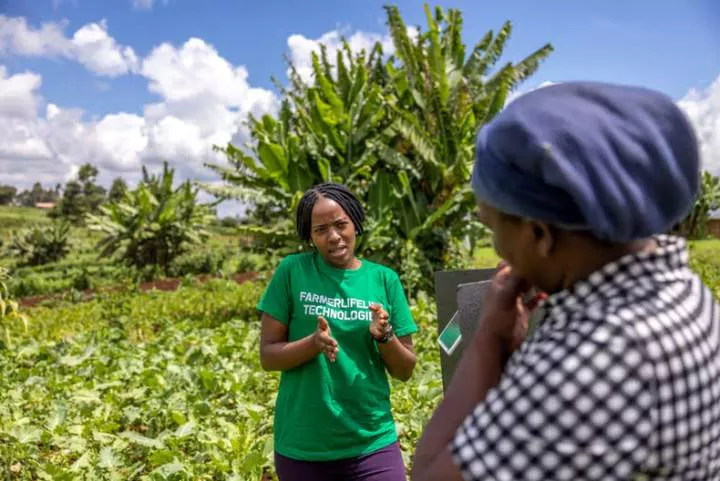
Africa's most notable prize dedicated to engineering innovation, The Africa Prize for Engineering Innovation, founded by the Royal Academy of Engineering, just handed out its tenth Africa Prize for Engineering Innovation in Nairobi. This year, the recipient was Esther Kimani an amazing innovator from Kenya. Through her patented innovation, she has been able to help reduce crop losses for smallholder farmers by up to 30%.
This year, the Africa Prize for Engineering Innovation awarded Esther Kiman, a Kenyan computer the sum of £50,000 for her work in aiding small-scale farmers in fighting pests and diseases.
Through her solar-powered AI pest detection tool and machine learning-enabled cameras, farmers have been able to identify agricultural pests and diseases early, reducing crop loss by up to 30% while increasing yields by as much as 40%.
Esther Kimani is the third woman and second Kenyan entrepreneur to win the Africa Prize in its 10-year span.
"My parents would lose up to 40% of their crops each farming season, which affected our standard of living. We are empowering smallholder farmers, many of whom are women, to increase their income. We aim to scale to one million farmers in the next five years."she said, as seen on the award's official page.
Esther received KSh 8.3 million to continue developing the gadget. This is the largest sum ever granted to a winner in honor of the Prize's tenth anniversary.
Esther Kimani's invention

Here's the amazing Kenyan lady recognized as the top engineering innovator in Africa
In Kenya, an estimated five million smallholder farmers experience an average crop loss of 33% due to pests and diseases. Along with giving customized intervention ideas and real-time notifications within five seconds of an infestation, Kimani's invention notifies government agricultural personnel of the existence of said diseases or pests and also helps with larger agricultural management initiatives.
The solar-powered tool detects and determines agricultural pests, viruses, or diseases, as well as the kind of infection or infestation, using sophisticated machine learning and computer vision algorithms. The farmer is then notified via SMS by the gadget. Leasing for just $3 a month, this cost-effective substitute for conventional detection techniques is far less expensive than employing drones or agricultural inspectors.
The Africa Prize for Engineering Innovation
The Africa Prize for Engineering Innovation was established in March 2014 to encourage, recognize, and reward innovation and entrepreneurship in Sub-Saharan Africa.
Since then, it has offered crucial training, mentorship, and communication services to 149 firms in 23 countries. It also has an established alumni scheme, with 71% of Africa Prize alumni actively earning money. Its alumni have also secured $39 million in grants and equity.
The Africa Prize has supported almost 150 entrepreneurs across 23 African countries, generating over 28,000 jobs and benefitting more than 10 million people through the innovative products and services developed

















Comments